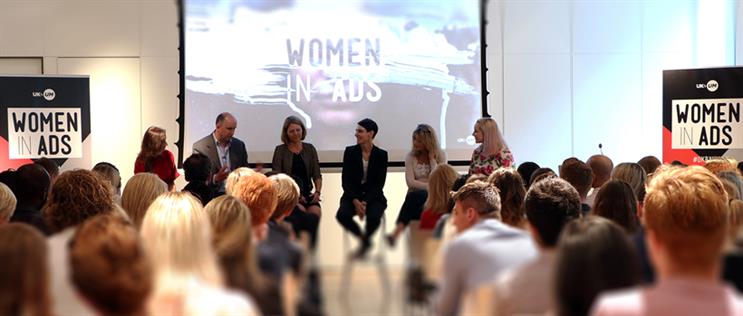According to research from Universal McCann, 65% of women and 59% of men like it when brands use traditional media to challenge stereotypes.
Speaking at a Women In Ads event in London last week, Michael Brown, insight director at UM, urged brands to throw out the template when it comes to women in advertising. He explained: ‘Humans are complex. So, for communications to be truly relatable, we need to move away from tired pen portraits that can be written before we embark on a project."
Ditch the stereotypes
In line with this, the research suggests that brands need to ditch gender stereotyping. As Brown explains: "People look to brands to behave as moral guardians – you are under far more scrutiny than other platforms. Your role is to help them break free from the shackles of identity norms."
Self identity in the UK is a pressured space
"I have felt pressure from adverts to be a certain way"
49% of women agree
"Adverts have previously made me feel like I’m not good enough"
44% of women agree
Speaking at a panel discussion at the event, Marina Haydn, executive vice president, marketing of The Economist, argued that diversity and inclusion need to become central to business. She said: "There are a lot of subtle nuances that are lost because women aren’t playing a bigger role in the creative process."
According to Haydn, for many brands conservatism is the easier route to take and it, therefore, takes "a lot of bravery to step outside these gender stereotypes".
Correlation between sexist content and impact on brand reputation
Which of the following would you associate with sexist content?
Would seeing a brand advertise on this media make you think less of them?
Addressing the action gap
Addressing the action gap between rhetoric and reality when it comes to gender stereotyping, Lindsey Clay, chief executive of Thinkbox, warned the industry being stuck in the past would lead to consumer criticism. "There is a real urgent need and opportunity to take this seriously."
Clay said businesses need to put in actual physical initiatives in place: "It’s ridiculous [that only 12% of creative directors are women]. You have to put quotas in place." She pointed to the success of initiatives such as Free the Bid, saying that if clients demand more women work on briefs change will follow.
Many people are defining as feminist
46% of women self-define as feminist
22% of men self-define as feminist
Tom Knox, chair at MullenLowe London, added that the lack of diversity in creative agencies is clearly a big problem. "We will never improve the diversity of the output unless we challenge the diversity of the creative teams," he said.
According to The Economist's Haydn, the conversation surrounding women and business is in danger of perpetuating a narrative in which everything is an enormous struggle. She believes instead we should move towards talking about when gender parity is reached and when gender neutrality in advertising is the norm. She added: "This can only happen when there is an agreement between men and women and we will move positively towards [change]."
Media channels which are considered sexist have low traction
Percentage of consumers who consume media channel regularly despite associating it with sexist content.
Successful stereotypes
Ironically the ASA’s move to introduce new guidelines on gender stereotyping in advertising is a reflection of just how successful these stereotypes are. Advertising has leant so heavily on perpetuating stereotypes, the move away from them may not always be linear or simple. As Mullen Lowe’s Knox pointed out, Unilever’s research shows that when consumers see a man in a cleaning commercial the message that they see is that the product is easy to use.
Sarah Wood, co-founder and chief executive of Unruly, believes one of the key ways in which brands can move beyond blunt stereotyping is greater use of personalisation. She explained: "There is a shift to personalisation afoot and it is about treating employees as individuals and communicating to people as individuals".
Pointing to the increased uptake of creative programmatic, Wood believes that the industry has the opportunity to move beyond producing mass-produced stereotypes and reach people as individuals.
Changing the conversation
The panel also addressed the thorny issue of gendered language with Clay sharing the example of a meeting she attended in which male executives talked about being "ballls deep". While Knox shared experiences of being in meetings featuring an over-reliance on aggressive hunting analogies. "When that happens, call it out," he added.
Clay pointed to the fact that whenever childcare issues are discussed it is always discussed as a challenge to women when childcare is an equal challenge for parents.
Sophia Durrani, managing partner strategy at UM London, added that equal paternity rights will help to change existing agency structures. "This is not just about women. It is something that will benefit all of us," she added.



